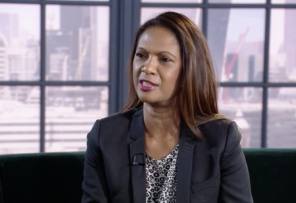

Economic uncertainty is a key concern for more than a third (34 per cent) of people when it comes to their ability to save for their retirement, research from Close Brothers Asset Management revealed.
Brexit appears to be taking its toll on financial security already, with 30 per cent of British adults revealing they are specifically worried about political uncertainty in the UK and Europe and how this will impact their retirement saving.
The research, based on a a survey of 2,184 GB adults, showed 11 per cent of adults are likely to increase the frequency with which they receive financial advice since the UK voted to leave the European Union as they look to ensure that they are financially prepared for the possibility of bumpy years ahead.
The findings also show that one in five (21 per cent) British adults are changing their investment strategy in reaction to Brexit.
Around one in seven (15 per cent) plan to be more conservative and take fewer risks following the Brexit vote, with 3 per cent planning to increase their risk exposure.
Not only is economic uncertainty undermining people’s ability to save, but it is revealed to be the biggest concern for people when it comes to making sure their money lasts long enough in retirement.
A quarter (26 per cent) of British adults cited economic uncertainty as their biggest concern in making money last once retired, while a fifth (21 per cent) cited living longer than the period saved for, and around one in 10 (9 per cent) cited the prospect of higher taxes when accessing pension pots.
Dennis Hall, chief executive and Chartered Financial Planner of Yellowtail Financial Planning in London, said while Brexit matters we can’t control it and even the government don’t know what life post Brexit will look like.
He said: "Savers' attention should be focused on the things they can control, like putting more aside for retirement. The big problem isn’t Brexit, it is the woefully inadequate level of retirement savings, and you don’t need to see a financial adviser more frequently to be told to save more."
Chartered financial planner Steve Carlson, of Cardiff-based Carlson Wealth Management, echoed these sentiments.
Mr Carlson said: "The uncertainty created by Brexit isn't anything new - there has and always will be uncertainty in the market so people need to have a robust long term plan in place that can cope with these uncertainties."
Fiona Tait, technical director of Intelligent Pensions, said: “Brexit is one of many uncertainties which can affect your retirement, along with rising life expectancy, changes to workplace pensions and extremely low annuity conversion rates.
"Juggling all of these factors can be really difficult for many savers, and let’s not forget that UK pensions legislation has been subject to constant change even without the Brexit effect.
"A professional financial adviser cannot pretend they will accurately predict all of these issues in advance but they can call on their experience and knowledge to help their clients make more informed decisions than they could do on their own."
David Newman, head of pensions at Close Brothers Asset Management, said ultimately a sound, long-term investment strategy is vital, with diversification across different assets and markets, to alleviate worries over short-term volatility.
stephanie.hawthorne@ft.com



